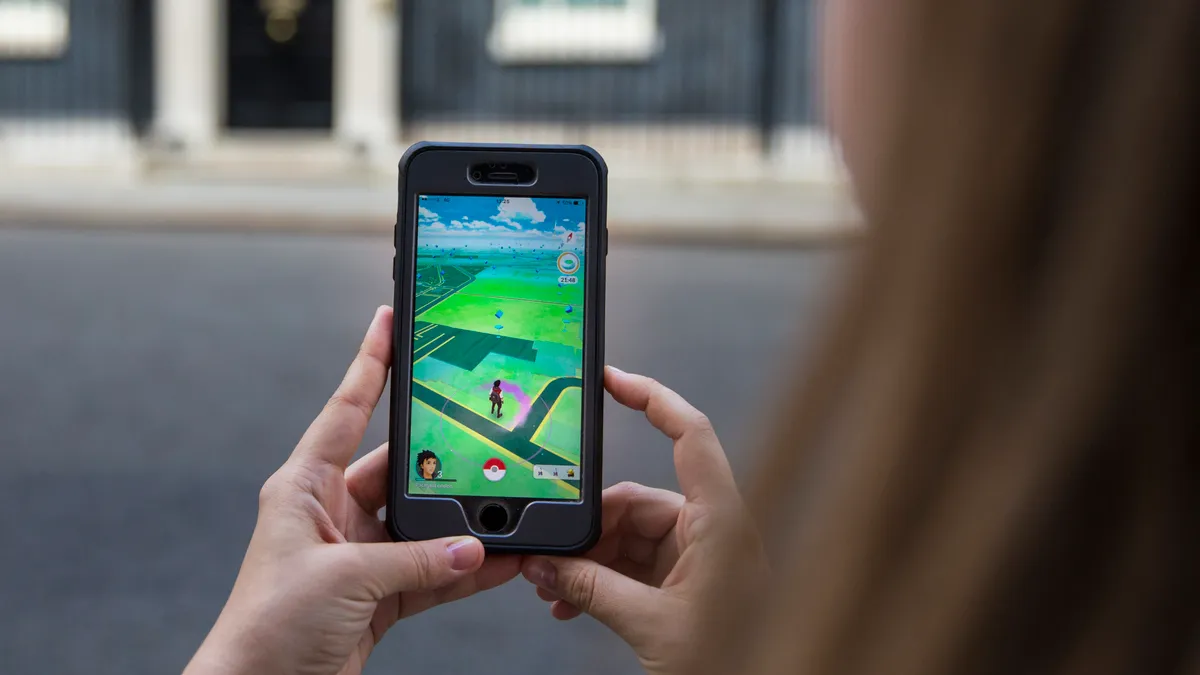Brief:
- Augmented reality applications, which overlay digital images onto a view of the real world seen through the camera of a mobile device, likely are a protected form of free speech, according to a ruling by Wisconsin U.S. District Judge J.P. Stadtmueller. The court ruled that Milwaukee County can't enforce an ordinance that requires software developers to get a permit for AR apps that work in public parks, the Associated Press reported.
- Milwaukee County enacted the rule in February after large crowds flocked to play Pokemon Go, an AR game made by Google spinoff Niantic, in a park near Lake Michigan. Officials said people playing the game trashed the park, leaving the county to pay thousands of dollars in additional police and maintenance services, according to court documents.
- Candy Lab, the developer of an AR poker game called Texas Rope 'Em that would be affected by the law, sued to overturn it. The judge chided the ordinance "for its strangeness and lack of sophistication" because it treats videogame companies "as though they are trying to hold an "event" in a Milwaukee County park."
Insight:
The Wisconsin judgment is a short-term victory for marketers and AR developers seek to harness the growing popularity of AR technologies. Video games have a long history of first-amendment protections, including a U.S. Supreme Court ruling in 2011 that voided a California law banning the sale of "violent video games" to minors. The First Amendment that grants rights to free speech applies regardless of the technology, the justices said.
From trespassing to inducing nausea in users, AR and VR pose some unique potential legal pitfalls for marketers, according to a recent Marketing Dive feature. Worldwide revenues for the AR/VR market are estimated to reach $13.9 billion in 2017, an increase of 130.5% from the $6.1 billion spent in 2016, according to the International Data Corporation. That explosive growth is bound to create more disputes that courts will have to resolve.
The explosive popularity of Pokemon Go spawned legal complaints of virtual trespassing, reckless driving, personal injuries, invasions of privacy, unfair business practices and almost every other allegation that plaintiff attorneys can dream up. While Candy Lab has won a short-term legal victory, lawmakers are sure to find new ways to regulate AR games that have negative effects on their real-world backdrop.










